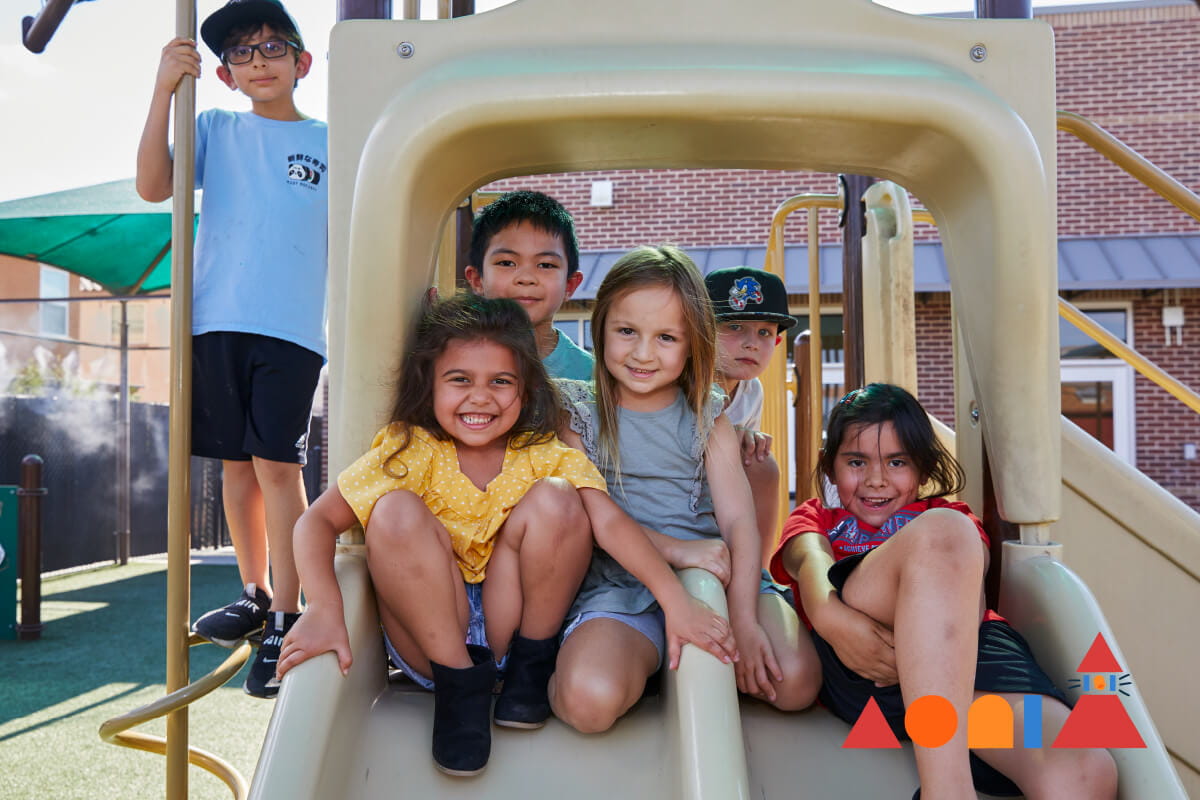Starting Kindergarten? What Your Child Needs to Be Ready

There they go, off to “big kid school!” As they walk into their first day of class with a new backpack and bevy of school supplies, you might pause for a moment and wonder, “Is my child really ready for kindergarten?”
Preparing for kindergarten is no small matter. Many moms and dads, bursting with pride and trepidation, shed a few tears when the first day of kindergarten comes.
Tommie Greene knows how big this transition can be for children and for families. A KinderCare Legacy Award winner, Greene has spent some 10 years preparing the four- and five-year-olds in her Pre-K class for the change. When the time comes, every single one of her students at Francisco Drive KinderCare in El Dorado Hills, California, is ready—socially, emotionally, and yes, academically.
“Because of changes to public schools across the country, preschool is more critical than ever,” Greene says. “Classes are larger than when I went to school in the 1970s, and children are expected to know more by the end of kindergarten than they used to.” Families, too, have a role to play in ensuring their kids can be successful.
We asked Greene to share some of her wisdom that helps kids head off to kindergarten prepped and ready.
1. Kindergarten Preparation Starts with Fun (Super-Duper Fun)
There’s an adage that goes, What we learn with joy we never forget. More important than what a child knows is their attitude toward learning. “These children are still so young, and you want to keep learning joyful and fun—even playful,” says Greene.
At home, you can: Incorporate a little learning into summer days! It’s easy. Children are naturally curious, so you can do things like count raisins before you gobble them up, or say a tree’s name as you walk past it.
2. Prepare for Kindergarten by Helping Them Feel Positive About Their Abilities
Junie may just be starting to scribble, while Dylan may be writing his name: Everyone learns differently (and at different paces) and that’s okay. “I always tell parents to give each child the space and time they need to show them what they know. The learning will come, at its own pace and in its own way,” Greene says. “The most important thing a parent can give a young learner getting ready to enter school is a feeling of positivity about themselves and school.”
At home, you can: Focus on what they can do, and get excited about where they are in their learning process. If your child still doesn’t know how to write the whole alphabet, don’t worry, they’ll get there. You can even help them by playing silly words games with letters they do know well, and add in one or two new letters every so often!

3. To Get Them Ready for Kindergarten, Give Them Confidence
“My motto in class is Do your personal best,” says Greene. “When you see work your child has done, give meaningful praise, so instead of a chorus of Good job, try to take note of something they did different. You might say, I see you made a whole series of circles. Tell me more about your idea here. That way, you’re also inviting a conversation about their ideas.”
4. Prepare for Kindergarten by Playing “School” at Home
“We play school a lot so my children can get used to the idea of school—and get excited about it,” Greene says. During this imaginative play period, each child has a desk, pencil box, and cubby where their own things go. “Parents can do the same thing at home by talking about what to expect at elementary school, what the rules are, and the importance of listening. Keep the focus positive, and on how exciting kindergarten is going to be.”
5. In Kindergarten, Social and Emotional Skills Are as Critical as the Alphabet
Tommie’s prekindergarten class has 12 students, but in kindergarten, students can number 25 or more. Children have to learn to listen, stand in line, raise their hand before talking, and not move around the classroom all day. That can be tough for many children! Helping children learn empathy, turn-taking, and teamwork will help them be successful, making preschool more important than ever. “Today, I believe it’s a necessary start,” Greene says.
At home, you can: Talk about feelings! Helping children to name their feelings is a BIG step toward raising them to be empathetic.
If you’re wondering if your child is ready for kindergarten, the best thing to do is reach out to your child’s Pre-K teacher—especially if you’re feeling anxious about it. They’ll be more than willing to answer questions about your child’s social, emotional, and academic readiness for kindergarten.
After all, big-kid school is a big deal—luckily, by choosing a top preschool, you can be certain that your child will be more than ready!




